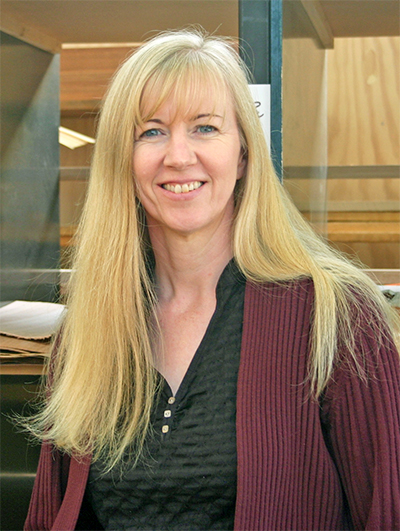Griffith Uni to help transform Australian manufacturing
EXTRA >>
GRIFFITH University is embarking an ambitious venture to ‘transform the very nature of Australian manufacturing’ as part of the Innovative Manufacturing Cooperative Research Centre (IMCRC) and with a focus on ‘additive’ manufacturing..
Bringing together a powerful coalition of businesses and researchers from across the country, the collaboration has recently been approved for Federal Government funding of $40 million to accelerate Australia’s transition to new design thinking and manufacturing processes, including additive manufacturing technologies such as 3D printing. 
IMCRC interim chair, Peter Jonson, said the Federal grant would be matched by more than $210 million of cash and in-kind contributions from industry, research institutions and state governments to lift the total budget to over $250 million and seed the process of transformation.
Jennifer Loy, program leader of industrial design at Griffith University, said the initiative would help stimulate small-to-medium-sized businesses to adopt the latest wave of technology in additive manufacturing.
“Making the transition from conventional technology to innovative manufacturing is more than just investing in the technology, it is also about understanding the opportunities technologies such as 3D printing are providing, and how to maximise it your business,” Dr Loy said.
“The investment of over $85 million in cash by government, industry and research will allow us to support a host of businesses from film to construction, lighting and furniture, mining through to medical devices, as they transition to 3D printing technology over the next seven to eight years.
“Griffith’s expertise is in the redesign of products to utilise the advantages of innovative manufacturing technologies,” she said.
“We have researchers working in disciplines as diverse as regenerative medicine and fashion, dentistry and industrial design who all bring experience in these technologies, which means we have the expertise available to work side by side with the IMCRC to regenerate our manufacturing industries.”
The goal of the IMCRC is also an ideal fit with Griffith’s “outward looking focus” according to Dr Loy.
“It’s the perfect synergistic relationship as Griffith University has a collaborative working model and are particularly good at cross disciplinary projects – which innovative manufacturing creates – and we are keen to work with industrial partners on pushing the capabilities of innovative manufacturing for their new applications.
“Griffith is working hard to develop graduates who have the specialised skills needed to help industry and maximise opportunities for growth.
“Our industrial design and 3D design digital media students are learning world leading software for additive manufacturing, and gaining hands-on experience of designing with advanced digital technologies, including 3D printing, scanning and electronics for new design applications.
“We envisage that the students of today will have the jobs of the future – ones that may not even exist yet, but that are clearly on the way, with 3D printing alone being forecast as a $7 billion dollar a year sector by 2020,” Dr Loy said.
“For this reason they are being equipped to develop new thinking in terms of digital fabrication and design process to ensure Australia is in line with, or ahead of, global trends in 3D technology.
“Even in this last month our PhD students have been excelling in design for 3D printing, with one winning the distinguished paper award at RAPID, the world leading industry and academic conference, and another having a design featured on Today in the US, with 6 million viewers.”
IMCRC’s research will be concentrated on high-growth sectors to help companies build the innovative capacity to develop market-ready opportunities.
The IMCRC is a collaboration of 14 initial manufacturing companies and end users who are already global, innovative and prepared to innovate further including many participants from the successful Advance Manufacturing CRC; four peak industry bodies that will help recruit over 300 additional SMEs as ‘portal partners’; and 16 Australian universities, CSIRO and the Fraunhofer Institute for Laser Technology.
The venture was announced by Industry and Science Minister Ian Macfarlane on May 26.
Ends

 How to resolve AdBlock issue?
How to resolve AdBlock issue?